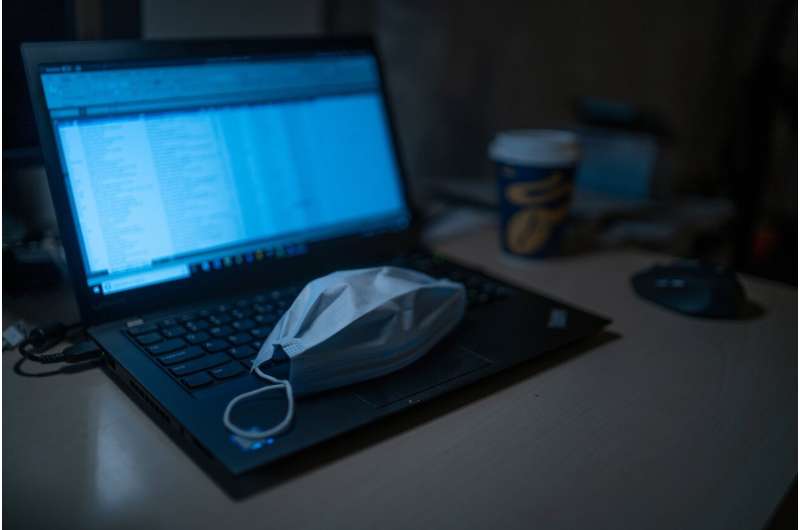This article has been reviewed according to Science X's editorial process and policies. Editors have highlighted the following attributes while ensuring the content's credibility:
fact-checked
reputable news agency
proofread
Why monitor wastewater of flights arriving from China for COVID?

Several countries have said they will monitor the wastewater from flights originating from China in response to an explosion of Covid-19 cases across the nation.
While the measure will not prevent the spread of the virus, itwill give a glimpse into the scale of China's outbreak and whether new variants are emerging there.
How does it work?
The process involves examining the mixture of urine and faeces from the toilets of flights that have arrived from China.
The wastewater can then be analysed to discover roughly what percentage of the passengers have Covid, as well as the particular variants.
Local authorities collect the wastewater directly after the aircraft lands and send it to laboratories for testing.
Once the virus has been detected, its genome is sequenced to find out if it is a known subvariant.
Wastewater can also be collected from an entire airport, but this makes it impossible to determine which country the samples originated from.
Which countries?
Belgium, Canada, Austria and Australia are among the countries that have already indicated they will test the wastewater of planes coming from China.
The European Union is expected to follow suit after a majority of national health ministry officials on Tuesday recommended stepping-up wastewater monitoring.
The United States is also considering the measure, according to US media reports.
Why?
Infections have soared in China since last month when it started lifting its strict zero-Covid measures, in place since the start of the pandemic.
Several countries including the US have said they require passengers arriving from China to provide negative Covid tests, sparking Beijing's ire.
Unlike such tests, monitoring wastewater would not bar people currently positive for Covid.
However, "these samples offer a window into what is currently happening in China," said Antoine Flahault, director of the Institute of Global Health at the University of Geneva.
This could be particularly important with "doubts about the transparency and diligence of the official health information coming from the Chinese government," he told AFP.
The World Health Organization on Wednesday criticised Beijing's "very narrow" definition of Covid deaths and said China's official statistics "under-represent" hospital admissions and deaths in the country.
Less invasive
Monitoring wastewater could help fill the breach, said Flahault.
"Knowing that 30 to 50 percent of passengers from China are currently infected is useful, in the absence of reliable figures," he said.
It also allows countries to find out about possible new variants that could change the trajectory of the pandemic, like Omicron did in late 2021.
Health experts have warned that the explosion of cases among China's 1.4 billion population could provide a fertile breeding ground for new strains.
Monitoring wastewater is much easier to carry out—and far less invasive—than testing arriving passengers at the airport.
The European branch of the International Airports Council lobbying group, which has lashed out on screening passengers from China, has instead called for increased wastewater surveillance.
Limitations
While examining wastewater "works remarkably well" however, it does not give an "exhaustive view" of the infections or variants onboard the plane, French virologist Vincent Marechal told AFP.
One limitation is that wastewater can only monitor those passengers who used the toilet during the flight.
It also takes days to collect, test, sequence and analyse the findings, which can not be broken down by individual passengers.
This offers few avenues to quickly act on the results.
"Once you have the information, what can you do with it? Call back all the people who were on the plane?" asked Marechal.
"It is interesting, but is already too late for the measures that one can take."
© 2023 AFP




















